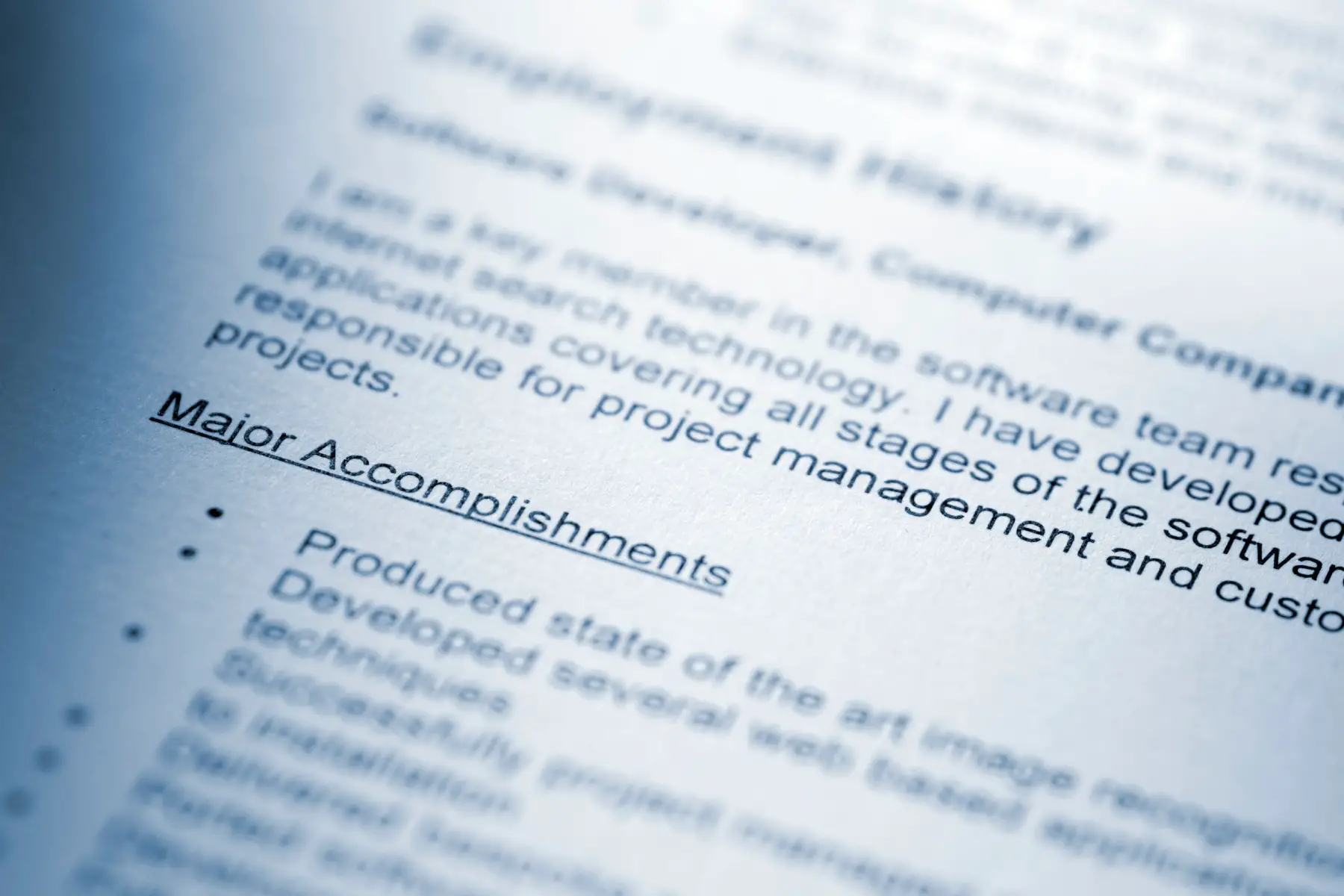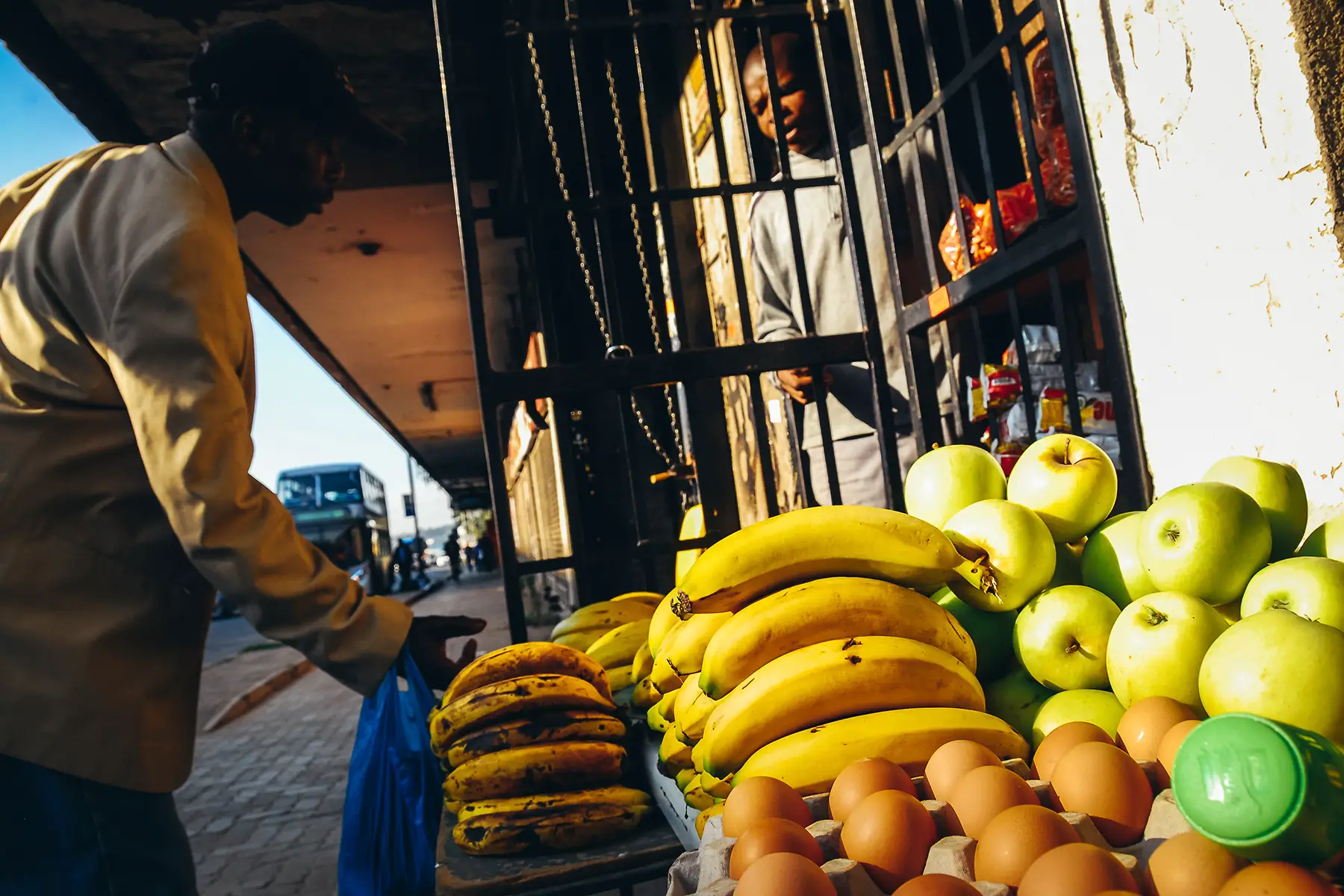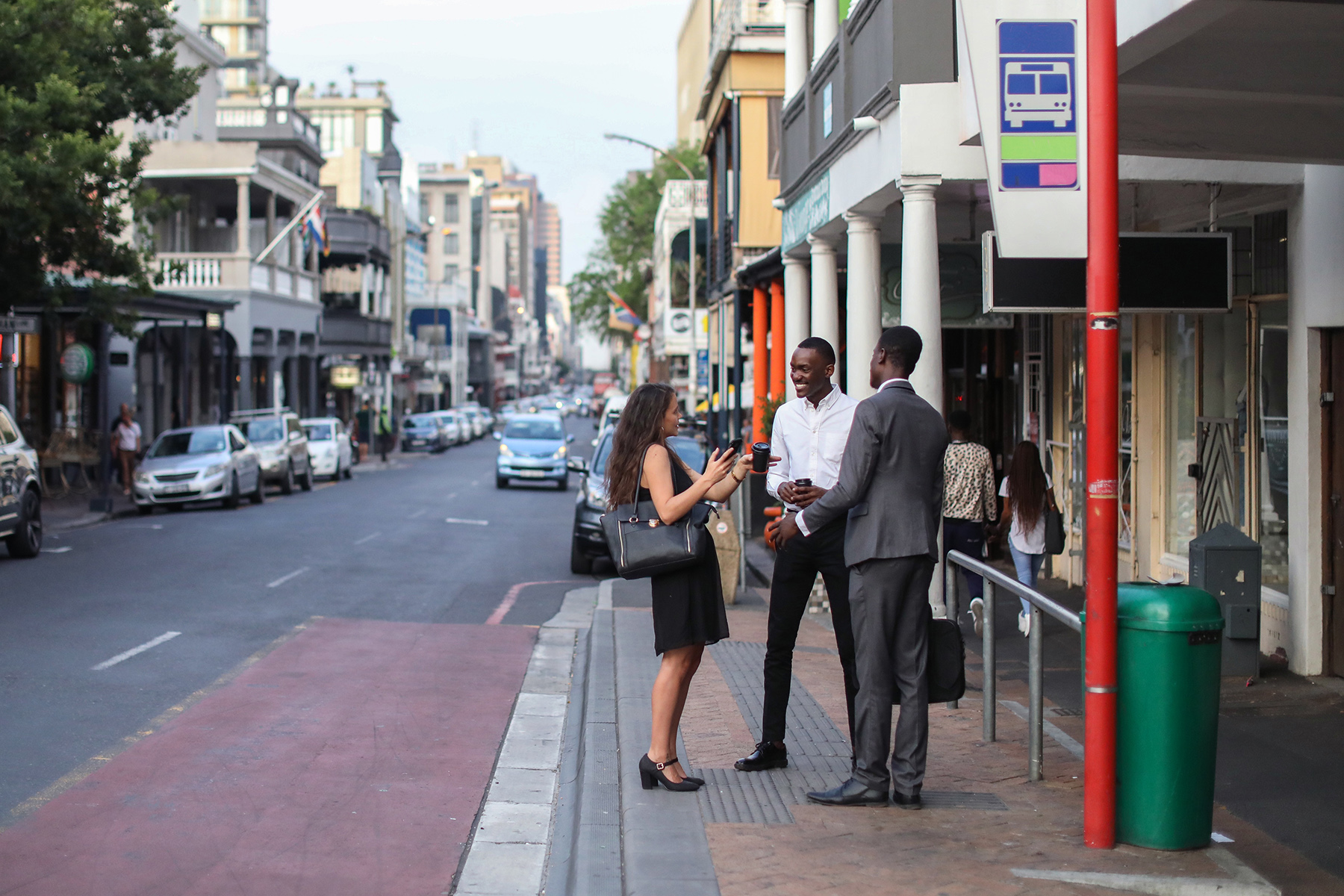Expats looking for jobs in South Africa will soon discover that opportunities are somewhat limited in vibrant Mzansi. However, that’s not to say there aren’t prospects for those brave enough to take on the challenge. However, in order to stand out from the crowd, it’s important to tailor your CV for the South African market and know what to expect when it comes to attending interviews.
So, to help you get started, this article provides the following information:
TopCV
Applying for jobs in South Africa? Learn how to tailor your CV for the local job market and make it stand out from the crowd with a little help from TopCV. Their CV experts are on hand to provide a free, confidential review to help you make your resume shine and you land you an interview.
The job market in South Africa
Since South Africa has an exceptionally high unemployment rate, job opportunities for expats are few and far between. That said, there are prospects for professional, qualified, and skilled individuals looking to obtain a work visa and move to the colorful nation. Low-income and short-term jobs, on the other hand, are typically occupied by locals given that most citizens do not have a tertiary education.

South Africa has twelve official languages, among which Zulu, Xhosa, and Afrikaans are prominent. However, English is the common language shared by all citizens and, therefore, the main language used in the workplace. The country also uses the British grammatical system, even though South African English has several unique traits as a result of combining a variety of accents and languages.
Because of this, relevant jobs will be advertised in English. Generally speaking, these advertisements are reasonably extensive, providing an adequate description of the requirements and responsibilities of the role, as well as the experience needed, qualifications required, working hours, and location. The salary bracket, however, is not always included.
Applying for jobs
When applying for jobs in South Africa, you should submit a brief cover letter and a CV which both demonstrate a competent level of English. Depending on the role you are applying for, you might also need to complete an application form if required.
Should the company desire further engagement, they will contact you via phone or email. If not, they will probably not contact you at all. As you might expect, the timeframe between the application and the interview can vary between companies. Having said that, the general rule of thumb is to wait 10 to 12 days before politely inquiring by phone, since an email may not elicit a timely response. In this case, it is best to communicate confidently, clearly, and friendly to get a quick answer.
Tackling discrimination
Competition is strong when it comes to obtaining a job in South Africa and unfortunately, prejudice continues to be a reality in the country.
Therefore, to avoid any possible discrimination, it is best not to reveal your age, ethnicity, marital status, or current salary on your South African CV. It is also advisable not to include a photo or additional documents in your application until you are considered for the job or it is specifically requested.
Writing a CV in South Africa
It is important to be aware that employers in South Africa receive many applications for their job advertisements. Moreover, you will be competing with South African citizens who may enjoy preference.

Therefore, your CV really needs to stand out. To give yourself the best possible chance of succeeding, you should ensure that your CV is tailored to meet the requirements of the South African job market.
You should write your CV in English and make sure that there are no spelling and grammatical mistakes before you submit it. You should also use language that is neither too casual nor excessively formal. The information should be clearly displayed in a font that is black, plain, and easy to read.
Your South African CV should cover between one and three A4 pages. Notably, lengthy resumes are not customary in South Africa and including irrelevant information may actually be detrimental to your application. Therefore, it is best to keep your CV short and sweet, providing concise information that is relevant to the job. This is where using bullet points can help.
How to structure a CV for South Africa
You should begin your CV with your personal information. This includes your full name, mobile phone number, email address, home address, and nationality. However, as mentioned, it is best not to disclose your ID, date of birth, sex, marital status, family responsibilities, or current salary. It is also not necessary or beneficial to include a photo. Remember, you should only submit this information when you are being considered for the job or when it is specifically requested.
You can then follow with your personal profile which should include the four w’s: who you are, where you are from, what your qualifications and experience are, and why you want the job. It is also wise to include your career objectives and goals in the ‘why’ section. However, remember to keep this brief – at around two or three well-written short paragraphs – since the rest of your CV will expand on it.
Next comes your educational background, professional training, and experience, which you should list in reverse chronologic order including dates and institutions. You should provide job titles, dates of employment, responsibilities, and achievements. This might include accolades such as promotions, presentations, and awards, if applicable.
You can then add your skill sets that will be beneficial to the job you are applying for. This might include your computer literacy, IT skills, language skills, and so on. You can then end your CV by providing the details of two references, including their names, positions in the company, and contact details. Just remember to notify them that they may receive a phone call from your potential new employer.
Tips for writing your CV
Here are some key tips to follow when writing your South African CV:
- A CV with spelling and grammatical mistakes may perhaps not be considered at all
- It should be no longer than three A4 pages
- Remember to add your references with their contact details: South African employers value references
- You might want to consider using an online CV builder such as TopCV, or one of these templates, to help you structure your resume for South Africa
Cover letters in South Africa
Given that your CV should demonstrate your academic and professional competencies and achievements, your cover letter can show a bit more of your personality and individual style.

That said, you should never lose sight of the goal, which is to demonstrate why you are the best person for the job you are applying for. Therefore, keep the information relevant to the position while incorporating your own dreams and ambitions.
Notably, you do not need to include your contact details in your cover letter, since this information will be on your CV. Moreover, you should not include copies of your ID, passport, or any qualification certificates until your potential new employer requests them.
The entire cover letter should be no longer than one A4 page. You should begin by addressing it to “Dear Sir/Madam” unless you know the specific name of the person who will be receiving it; in which case you can use, for example, “Dear Mr. Smith.”
The opening paragraph of the letter should serve as an introduction, in which you briefly explain how you became aware of the job and why you are applying for it. The rest of the letter should explain your suitability and motivation for the job in two to three paragraphs.
You can end your letter by reminding the recipient that you have attached your CV for review and informing them that you will follow up on your application in 10 days.
Notably, some employers in South Africa will use application forms rather than cover letters, so be sure to adhere to this and send a copy of your CV with it.
And finally, it is advisable to email your cover letter and CV (in PDF format), rather than post it, as postal services in South Africa are not always reliable.
Phrases and accented letters
Here are some standard phrases to include in your cover letter:
- Dear Sir/Madam
- I am currently working for…and my responsibilities are…
- I am especially competent in the area of…
- I am particularly interested in this job, since…
- I can maintain high standards while working under pressure
- I eagerly await your response
- I have pleasure in applying for the position of…
- I will be well suited to the position because…
- My professional qualifications and skills are well-suited to your company’s requirements
- Whilst studying/working at…I became highly proficient in…
Job interviews in South Africa
What to expect in a job interview
Job interviews in South Africa typically last between 30 to 40 minutes. Psychometric tests and other forms of assessment will usually be done during the second interview. However, this may vary depending on the type of company.
Your potential future boss will most likely be present at the interview. If you apply for a high-level job, the big boss of the company may also be present. You might also be interviewed by a board of directors. The person that is currently in the job that you are applying for may also be present.
When attending a job interview, it is a good idea to take your CV and qualification certificates with you in case they request it. It is also wise to take a pen and paper or your chosen device for making notes.
Dress code and appearance
Naturally, what you might wear to an interview in South Africa will depend on the job you are applying for. For instance, an interview for a corporate position in finance or law will require formal business wear such as a suit and tie for men and a tailored dress, pantsuit, or skirt suit for women. When applying for less formal positions, however, you can dress business casual which means appearing professional but not overly formal.

Whatever you wear, however, you should avoid wearing denim and sneakers, and make sure you are well-groomed to make a good impression.
Notably, if you are on a tight budget, you can also check out some local charity shops and thrift stores to look for affordable second-hand clothes.
Questions to expect in an interview
When it comes to job interviews in South Africa, preparation is key. Therefore, knowing what kinds of questions you might be asked, and practicing how to answer them beforehand, will put you in good stead.
For instance, you might want to prepare an answer to a tricky question such as: “Are you aware of the challenges that South Africa presents and how will you confront them in the workplace?”
It is also important to be knowledgeable about the unique challenges that affect the workplace in South Africa. This includes load shedding (constant electricity cuts), cultural differences between ethnic groups, poverty, crime and violence, and infrastructure issues with water, sanitation, and roads.
When addressing these issues in the interview, try to have a positive attitude and strive to come up with solutions rather than dwell on the negatives. After all, attitude is a key determining factor when it comes to who gets offered the job. You should also try to use constructive vocabulary since you don’t want to offend the interviewers who will probably be South African citizens who love their country despite its difficulties.
Questions to ask in an interview
Your interviewer will usually give you an opportunity to ask some questions too. Therefore, it’s a good idea to have some prepared before the interview.
Some sensible questions to ask during your first interview might include:
- What are your expectations for me to succeed?
- What opportunities will there be for training and progression?
- What will my responsibilities involve?
- What will you expect me to accomplish in the first three months?
- When can I expect to hear from you?
If you make it to the final interview, you might also want to ask some of the following questions before you accept the job and sign a contract:
- Do you expect your employees to work overtime?
- How much leave do you grant?
- Is there a trial period?
- What are the next steps in the employment process?
- What are the official working hours?
- Will I be expected to travel? (If applicable)
When are salary and benefits discussed during the hiring process?
As mentioned, not all companies in South Africa will provide a salary bracket in the job advertisement. In fact, this might only be discussed at the second interview, when you are being considered for the job, or once you are being offered a contract.

With this in mind, it is best not to ask about this during the first interview. However, don’t be surprised if the interviewer inquires about your salary expectations at this stage.
Notably, if the topic of salary and benefits has not been discussed in the second interview, it is acceptable to politely inquire about it at the end.
Tips for job interviews
- Address your interviewer/s as Sir or Madam unless they invite you to use their first names
- Arrive 15 minutes early for your interview. If you travel to the venue, plan for unfortunate events, and leave one hour early. It’s better to be too early than too late!
- Be well prepared to answer a question regarding salary expectations
- Greet your interviewer with a firm handshake or a big smile and nod. Make eye contact but do not put your hands in your pockets.
- If your interview is online, sit ready at your laptop and log in 10 minutes prior to the interview
- Prepare a brief 30-second self-selling pitch on what makes you an ideal candidate for the position
- Prepare insightful and relevant questions based on your research
- Research the company before your interview: this will enable you to demonstrate your knowledge and initiative
Online and phone interviews
Online interviews are common practice in South Africa and companies use various platforms such as Microsoft Teams, Zoom, and Skype. Telephone interviews, on the other hand, are not common and will only be conducted if there are no online or in-person options.
Below are some important things to check ahead of your online interview:
- Have a glass of water nearby
- Make sure your internet connection is stable and sufficient
- Test your audio and visual equipment in advance
- There should be no background noise or activity
- Your backdrop should look neat and professional
- Your lighting should be good enough for the interviewer to see you clearly
- You should look neat and professional
Recruitment tests and tasks
Pre-interview screening is not very common in South Africa. However, some companies require short-listed candidates to take one or more tests once they have passed the first interview stage.

Some of the different types of tests include:
- Aptitude tests
- Cognitive ability tests
- Emotional intelligence tests
- Job knowledge tests
- Language tests
- Personality tests
- Physical abilities tests
- Psychometric tests
- Skills assessment tests
Qualifications in South Africa
Expats working in South Africa may find that some employers do not understand or recognize the qualifications they have obtained in their home country. Therefore, they may have to apply to the South African Qualifications Authority (SAQA) to have their qualifications evaluated. You can read more about this on the South African Government website.
After the job interview
Generally, you can expect to be contacted within 10 to 14 days after the job interview if you were successful. However, if you were unsuccessful, you might not be contacted at all.
The starting day of your new job will usually be on the first weekday (Monday to Friday) of the next month. However, this can be influenced by logistics such as relocating to South Africa, obtaining a work visa, and finding a place to live. It is wise to enquire exactly which documents you need to bring along with you on your first day of work.
Notably, a trial period does not always apply, but if it does, it is usually three months, after which you will be offered a contract.
Useful resources
- My Wage – provides information about wages and labor law in South Africa
- news24 – explains the impact of load shedding on businesses and how it affects South African labor law
- South African Government website – provides tips on how to compile a CV
- Western Cape Government – provides some useful tips on how to deal with load shedding






